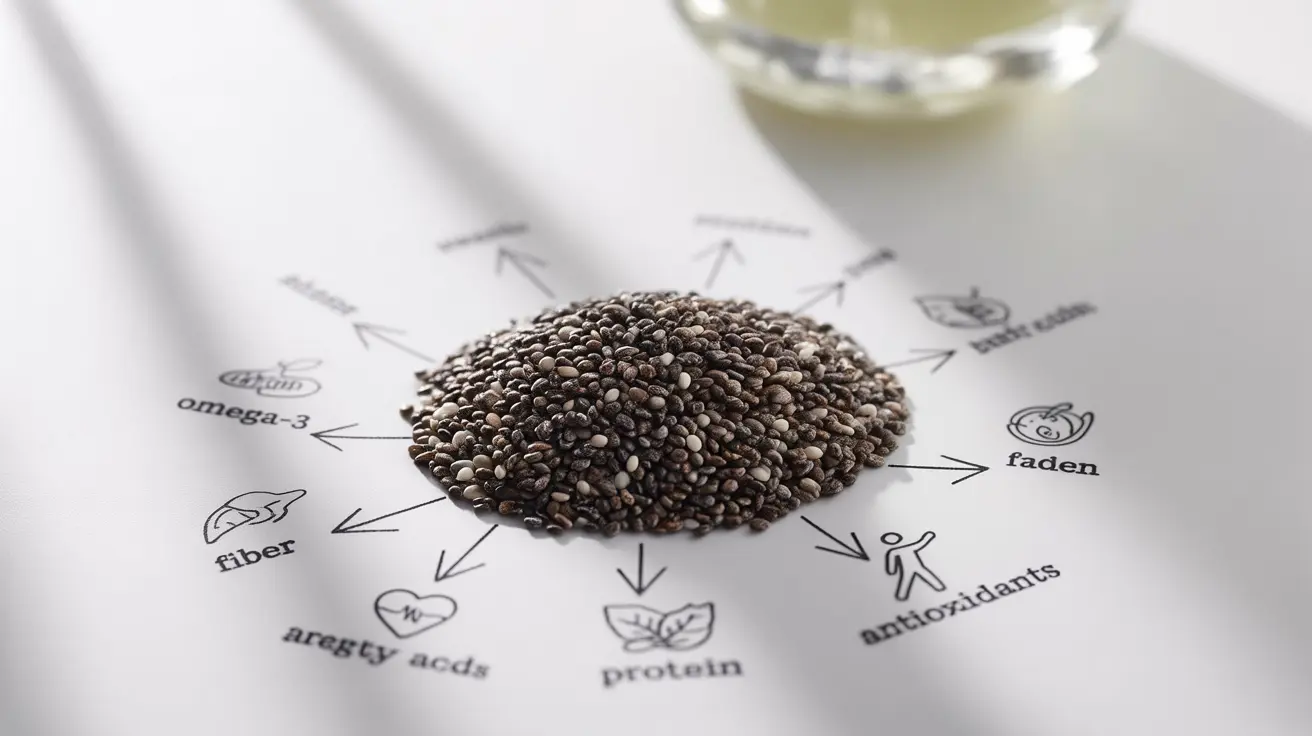Chia seeds have emerged as a powerful superfood, packed with essential nutrients that can significantly impact your overall health and wellness. These tiny seeds, derived from the Salvia hispanica plant, have been used for centuries in traditional medicine and are now gaining worldwide recognition for their impressive nutritional profile and versatile applications in modern healthy eating.
From supporting heart health to managing blood sugar levels, chia seeds offer a wide array of evidence-based health benefits that make them a valuable addition to any diet. Let's explore the remarkable advantages of incorporating chia seeds into your daily nutrition plan and discover practical ways to enjoy them.
Nutritional Profile of Chia Seeds
Chia seeds are nutritional powerhouses, containing an impressive concentration of essential nutrients in their small size. These seeds are rich in:
- Omega-3 fatty acids
- Fiber (both soluble and insoluble)
- Protein
- Calcium
- Phosphorus
- Zinc
- Antioxidants
Heart Health Benefits
One of the most significant advantages of chia seeds is their positive impact on cardiovascular health. The high concentration of omega-3 fatty acids helps reduce inflammation and can contribute to maintaining healthy cholesterol levels. The soluble fiber in chia seeds may help lower LDL cholesterol, often referred to as "bad" cholesterol.
Regular consumption of chia seeds has been associated with improved blood pressure levels, particularly in individuals with existing hypertension. This benefit is partly due to the seeds' high content of alpha-linolenic acid (ALA), a type of omega-3 fatty acid.
Digestive Health and Fiber Benefits
Chia seeds are exceptional sources of dietary fiber, providing both soluble and insoluble varieties. When consumed, they can absorb up to 10-12 times their weight in water, forming a gel-like substance that aids digestion in several ways:
- Promotes regular bowel movements
- Supports healthy gut bacteria
- Helps prevent constipation
- May reduce inflammation in the digestive tract
Blood Sugar Management
The unique combination of fiber, protein, and healthy fats in chia seeds makes them particularly beneficial for blood sugar control. When consumed as part of a meal, chia seeds can slow down the digestion of carbohydrates, resulting in a more gradual release of glucose into the bloodstream.
Practical Ways to Include Chia Seeds in Your Diet
Breakfast Options
- Add to overnight oats
- Blend into smoothies
- Sprinkle on yogurt or cereal
Main Meals and Snacks
- Use as an egg substitute in baking
- Add to salads for extra crunch
- Mix into homemade energy bars
Beverages
- Create chia seed pudding
- Add to water or juice
- Incorporate into post-workout drinks
Frequently Asked Questions
What are the main health benefits of eating chia seeds regularly?
Regular consumption of chia seeds provides numerous health benefits, including improved heart health, better digestion, stable blood sugar levels, and increased intake of essential nutrients like omega-3 fatty acids, fiber, and protein. They also provide sustained energy and can support weight management goals.
How do chia seeds help with heart health and lowering cholesterol?
Chia seeds support heart health through their high content of omega-3 fatty acids and fiber. These nutrients help reduce inflammation, lower LDL cholesterol levels, and support healthy blood pressure. The ALA in chia seeds is particularly beneficial for cardiovascular health.
Can chia seeds improve digestion and relieve symptoms of constipation or IBS?
Yes, chia seeds can improve digestive health due to their high fiber content and ability to form a gel-like substance when mixed with liquid. This helps promote regular bowel movements, supports gut health, and may help alleviate symptoms of constipation and IBS by providing both soluble and insoluble fiber.
How do chia seeds affect blood sugar levels and diabetes management?
Chia seeds can help manage blood sugar levels by slowing down the digestion of carbohydrates, thanks to their fiber, protein, and healthy fat content. This results in a more gradual release of glucose into the bloodstream, which can be particularly beneficial for people with diabetes or those at risk of developing it.
What are the best ways to include chia seeds in my daily diet?
Chia seeds can be easily incorporated into your daily diet by adding them to smoothies, oatmeal, yogurt, or salads. You can also make chia seed pudding, use them as an egg substitute in baking, or mix them into beverages. Start with small amounts (1-2 tablespoons daily) and gradually increase intake while ensuring adequate fluid consumption.




